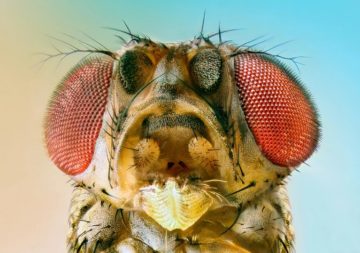Smriti Mallapaty in Nature:
 Researchers have discovered an entirely new kind of taste receptor that allows fruit flies (Drosophila melanogaster) to detect alkaline substances — those that have a high pH — and avoid toxic meals and surfaces. Finding a new taste receptor in such a well-studied animal is unexpected, says Emily Liman, a neurobiologist at the University of Southern California in Los Angeles. “I found it quite surprising that there is this whole new type of taste,” says Liman. “It is really beautiful work.” The discovery, published in Nature Metabolism this week1, could “potentially inform future research into the physiological mechanisms underlying alkaline taste in other organisms”, says Lai Ren, a biochemist at the Kunming Institute of Zoology at the Chinese Academy of Sciences.
Researchers have discovered an entirely new kind of taste receptor that allows fruit flies (Drosophila melanogaster) to detect alkaline substances — those that have a high pH — and avoid toxic meals and surfaces. Finding a new taste receptor in such a well-studied animal is unexpected, says Emily Liman, a neurobiologist at the University of Southern California in Los Angeles. “I found it quite surprising that there is this whole new type of taste,” says Liman. “It is really beautiful work.” The discovery, published in Nature Metabolism this week1, could “potentially inform future research into the physiological mechanisms underlying alkaline taste in other organisms”, says Lai Ren, a biochemist at the Kunming Institute of Zoology at the Chinese Academy of Sciences.
Most animals function in a narrow pH range, which makes sensing acids and bases important for their survival. Studies in the past few decades have detailed the receptors, cells and neural circuits involved in detecting sour and acidic tastes2, which occur at low pH, but sensing alkaline substances is not well understood, says Lai. Some early work in people3 and cats4 suggests — but does not prove — that the alkaline sensation could be a type of taste, he adds.
More here.
